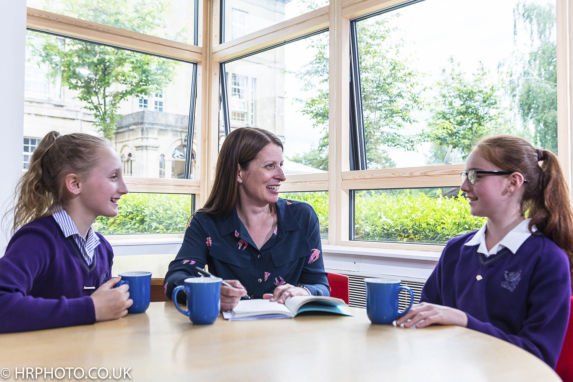Date Posted: 26th July
Categories: Pupil Support
Every parent dreams of their child feeling happy and thriving at school. Wanting your child to feel secure in their friendships and in their educational environment is only natural. No parent wants their child to be upset, unsettled or uncomfortable at school. In fact, the average child spends between 500-550 hours of their life each year in school, not including any additional activities or study time. So, it comes as no surprise that feeling happy and settled at school is imperative to a child’s emotional and academic development both inside and outside the classroom.
For many, there may be small tweaks and changes that can vastly and quickly improve the situation. It could be relatively easy to get your child back on track and flourishing at school. For others, though, there might be more extensive measures that need to be put in place to ensure your child feels thoroughly confident, settled and secure at their school. A change in school may also be needed.
Making sure your child is in the right school for their individual needs is essential to their progression and achievement. In order for a child to be engaged in learning, to produce their optimum work and to set them on the correct path for a bright future, they need to be in the best school for their needs. Thriving children feel happy at school, they want to be there and like to take part in school life.
It’s never too early to consider your child’s future path and what road they would like their life to follow. If they aren’t feeling happy at school, this may inhibit or restrict their ambitions for success. They may believe that they can’t achieve their goals if they are not settled in the place where they spend a great deal of time.
Listening to what your child is telling you about their time at school is an essential starting point in understanding what they are experiencing in education. They may take a little encouragement to open up about what is going on at school, but with a secure atmosphere and people they trust, they will probably let you know how school is affecting them, their access to academic achievement and emotional wellbeing.
No matter how good your relationship with your child is, it’s likely that they may not tell you straight away if they are unhappy. Most children keep these things to themselves unless there is an overt opportunity to discuss their state of mind with people who make them feel safe.
If you suspect things aren’t going as well as you would like, there are signs to look out for that can give you an idea about how your child is feeling about school. Watching for these signals and talking to your child about them if they occur can help you figure out if they are happy and settled or not.
School may get in touch with you to let you know that your child’s grades are stalling or that they are beginning to fall behind. You may notice that they aren’t putting the same amount of effort into their school work.
These are indications that perhaps your child is not able to concentrate on their work, they may feel distracted by what is going on in class, with other children or with teachers. Liaising with the school will present you with a clearer picture of what your child is going through, so that you can broach the topic with them in an informed way.

Over time, your child may become quieter and quieter. They may be spending more time alone or not spending as much time with friends as they did previously. If they usually partake in extracurricular activities, they may begrudge going or not enjoy it as much as they once did. If this is the case, then checking with school to see if this quietness is part of their school day is a sensible move. The school can then identify when and where your child is being silent, possibly tracking down what is actually making them feel unhappy at school.
When a child experiences a negative emotion – frustration, boredom or fear – they usually can’t express or process this emotion effectively. They may turn to being a bit silly or not behaving well as a way to communicate their fear or frustration and to get some attention from an adult.
There are many different forms of misbehaviour that children can tap into when they are upset. Answering back, sulking, yelling or even lashing out can all be signs that things are not well with your child. Talking these events through with your child, and getting them to see they are a symptom of how they are feeling inside, could help resolve these behaviour patterns.
Your child may begin to cry, sweat or look uncomfortable when it’s time for school or even when school is mentioned. There may be more than normal complaints of feeling poorly. Try to keep a log of how often your child is reacting in these ways and what is going on at the time to see if school, or what is happening there, is the root cause.
The first port of call should be your child’s school. Speaking to teachers and staff who are really familiar with your child, such as their tutor or head of year, will get the ball rolling. You may want to ask them to investigate the circumstances of your child’s unhappiness – perhaps there is a particular lesson or situation that is causing stress.
Arranging a meeting where everything can be discussed once they have gathered relevant information is a sensible idea. You may or may not want to involve your child in an initial meeting, that decision will probably be led by your individual position and how your child reacts in these situations.

Other ways that you can try to help your child feel more positive in outlook could be to encourage them to join clubs, both inside and outside school. If they start to feel involved in extracurricular activities, sports and hobbies, then this could give them an outlet for their feelings and enable them to feel more safe and secure.
Your child’s school may be able to create a conciliation meeting if your son or daughter is having issues with friends or teachers. This could be a series of meetings or a one-off to gain some understanding of the situation and try to put proactive measures in place to improve the situation. Talk to your child’s school about what they can do to help your child feel more settled.
The school should be in regular contact with you during this time so that you and your child can share any worries you may have. They may be able to suggest activities or sources of support outside school to help your child build a plethora of positive emotions that enable them to feel confident and contented within themselves.
What is most important is to talk honestly with your child. Finding out what their expectations of school are, how they feel and what is happening to make them experience unhappiness, are all key topics that are reasonable to cover.
Just the act of admitting they aren’t totally happy and feeling they can share their fears with you will make your child feel instantly better. You know your child best, so you will be the person who can communicate with them in a way that gets them to express their worries and concerns.
Sometimes, arranging fun activities that your child enjoys, watching their favourite film or doing a sport they enjoy as a family unit can help them forget their worries a little and show them that they can move on from their current situation. Asking them what they would like to do as a family is a good starting point so that they gain the maximum from the experience.
If you can resolve these issues at school and your child can move on and be happy at their current school, then it might a good idea to keep them in a settled environment. Potentially, this is an easier situation than moving schools.
However, your child may continue to feel unhappy and unsettled, so this is the time when you might start to research alternative educational settings that can give your child a fresh start, positive emotional wellbeing and secure academic progression.
If you are beginning to think about changing your child’s school, then there are a variety of factors to take into consideration. Here are some of the key points to reflect on when making your decision.
Friends are a huge part of any child’s life and the thought of leaving friendship groups to meet new people can be a worry. It’s really important to reassure your child that they will always be able to see and speak to their existing friends if they move schools.
There are lots of ways of keeping them connected, from organising group activities to keeping touch online and by phone. Highlight the fact that it’s not about ending friendships and making new ones, rather it is about extending the range of friends your child will have.
Meeting new people can be really exciting for children and it’s a good idea for them to be prepared for the prospect. Many schools will help your child settle in with their buddy system and pair them with like-minded people to encourage a feeling of belonging.

When you start to look for the best educational setting for your child, finding out where it is in relation to your home and the rest of your family is an important part of the process. Factoring in the cost of travel, where friendship groups will be based and how far your child will travel to school are all significant. However, you may be considering a school where your child boards or flexi-boards so that may mean location isn’t a daily issue.
Finding the right place for your child where they are happy is probably going to be at the forefront of your mind. If you are thinking about changing schools, then read our informative blog: ‘Moving Schools In Year 9’ to give you lots of detail and ideas about how best to make the change.
Whichever school you are thinking of choosing for your child, one of the most vital aspects to take into account will be what type of education the school can offer your child. No doubt, your son or daughter will have subjects they really want to pursue at GCSE or A level.
Asking the school you are interested in what their curriculum is like, whether they can offer your child what they want to study and what the educational environment is like, will help confirm your decision.
The school should have a rich, broad and exciting curriculum enhanced by excellent extracurricular opportunities. An example of this would be the excellent educational system we have at Wycliffe school where we encourage individuals to flourish, develop a pioneering spirit and embrace the future as innovative and independent young people.
How your child will settle in to a new school and develop firm friendships is probably one of the items at the top of your list if you are thinking of changing your child’s school. The pastoral care that a school has in place to protect, nurture and encourage your child is a vital element in their ability to settle.
Make a note to enquire with the school all about their pastoral systems and how they intend to help your child find their feet and encourage them to feel part of the school. There should be plenty of staff who have responsibility in ensuring that all children flourish academically and emotionally within the school environment. Wycliffe’s pastoral system is extensive and very effective in positively supporting all students in their educational journey.

Wycliffe Senior School for 13-19 year olds offers a complete educational experience for every student. Our curriculum is rich, challenging and robust, matched with pastoral care that puts children at the heart of everything we do. What really matters to us, as educators, is that we help your child to reach their full potential – whether they are gifted and talented or need some academic and emotional support.
Our ethos is to nourish students to build confidence, independence and resilience so that they face future challenges with relish and develop truly useful life skills along the way. Our individualised learning pathways present an innovative and beneficial approach so that every child follows the best curriculum for their talents and interests.
Please feel free to contact Wycliffe to make enquiries about our Senior School and the personalised educational programme your child could benefit from.
If you are based in Gloucestershire or the surrounding areas, why not get in touch to discover all that we can offer in Years 9 to 11.
Related Articles